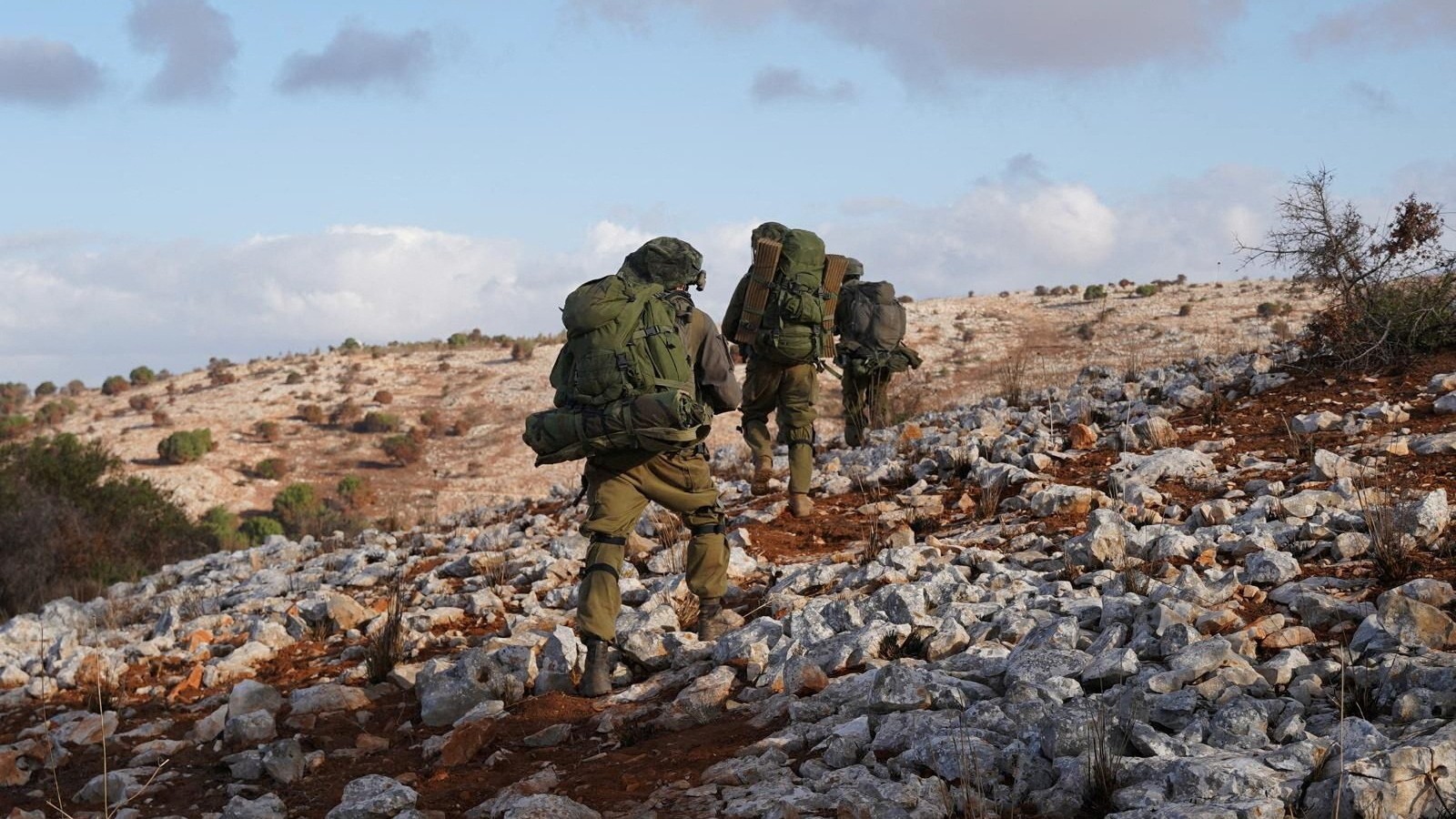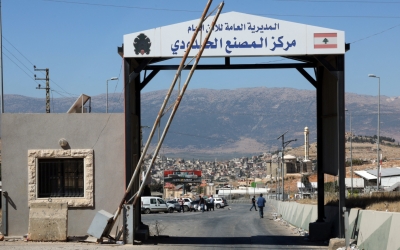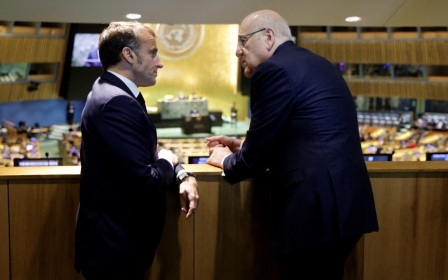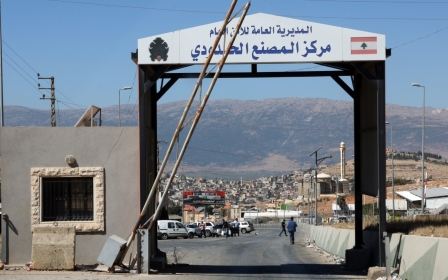Not neutral but not fighting: Lebanon’s army walks tightrope on Israeli invasion
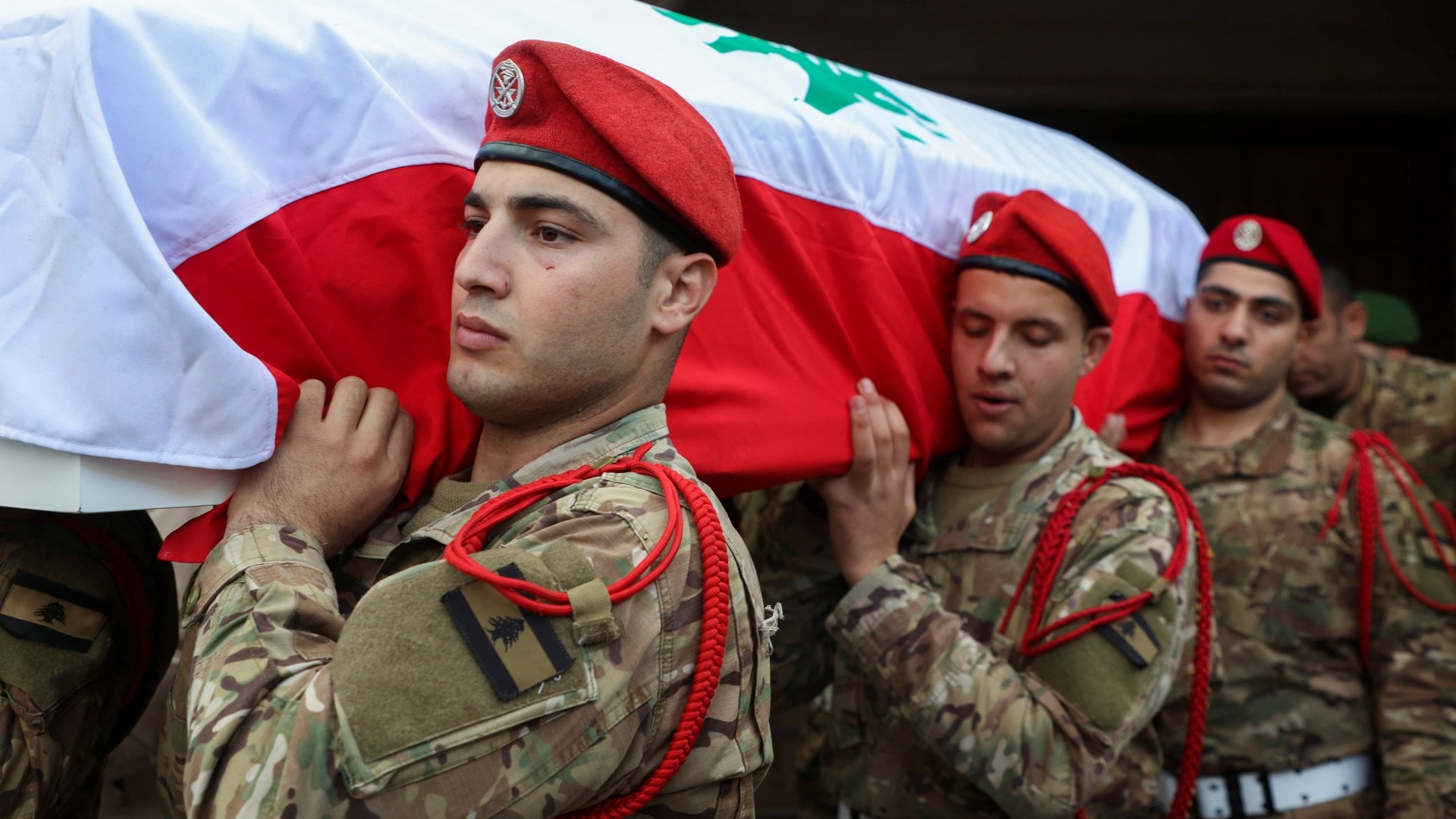
A few days ago, Lebanon’s army commander, General Joseph Aoun, visited Parliament Speaker Nabih Berri to discuss how the military will respond to Israel's invasion of southern Lebanon.
There, they reaffirmed the Lebanese political authorities’ long-standing position: Lebanon’s military must not be involved in Israel’s war and battles with Hezbollah.
However, sources close to the military establishment said that this position does not mean that the army will retreat from its positions in the south and move north of the Litani River, some 30km from the Israeli border.
As Israel stepped up its ferocious bombing campaign last week ahead of the ground invasion, Aoun decided to withdraw some of his troops from observation stations along the Blue Line, the quasi-border that separates Lebanon from Israel, where they were exposed to Israel’s line of fire, the sources said.
Yet, the Lebanese army, despite its limited capabilities, will remain in south Lebanon and will respond to Israeli fire on its positions, as it has over the past couple of days.
New MEE newsletter: Jerusalem Dispatch
Sign up to get the latest insights and analysis on Israel-Palestine, alongside Turkey Unpacked and other MEE newsletters
On Thursday, an Israeli strike on a military post relatively far from the Blue Line killed a soldier, prompting Lebanese troops to fire back from their tanks. It was the first time the army responded to Israeli fire since the conflict started a year ago.
Israel has killed at least 18 Lebanese soldiers and wounded 45 since Hezbollah and the Israeli army began clashing in early October in response to the war on Gaza. Three of the soldiers were killed by direct Israeli strikes, while the rest were killed in raids that targeted their homes or villages.
“The army’s operations room is following the developments on the ground hour by hour. It is awaiting the ground invasion of Israeli forces into southern Lebanon and is giving instructions to the soldiers and officers stationed in the south,” one military source said.
But while the army has not withdrawn from the south, it is well aware that its capabilities are too weak to confront Israel’s superior weapons, technology and military vehicles.
Even before Lebanon was cast into a catastrophic economic crisis in 2019, the Lebanese Armed Forces were under-resourced and reliant on foreign support. More recently, they have become threadbare, even resorting to food handouts from Jordan.
“There is no room for comparison between the Israeli Merkava tank and the M48 tank used by the Lebanese army. The differences between them are enormous,” the source said.
“Despite that, however, the army remains ready to respond, within the limited range of its power, if it comes under fire.”
Earning trust
Israel has killed more than 2,000 people in Lebanon since hostilities began in October, the majority of them in the past three weeks.
While the Israelis seem adamant about pressing their assault, with speculation that they intend to re-occupy parts of southern Lebanon and push Hezbollah from the border, the Lebanese movement is fighting effectively and scoring significant hits on invading forces.
Within Lebanon and internationally, there is talk that a roadmap to a ceasefire would involve the Lebanese army and UN peacekeepers deployed in the south, as was the case after the 2006 war.
Mohammad Obeid, a politician close to Hezbollah and the military establishment, said confidence in the army’s ability to become the peacekeeping force in the south depends on how it approaches the war on the ground now.
“The issue is, how can southerners trust the military institution to protect them if it decides to withdraw its troops from the battle?” Obeid told Middle East Eye.
Obeid said the military establishment's experience during Israel’s 2006 war on Lebanon was not successful, highlighting an infamous incident where Lebanese soldiers surrendered their weapons to invading Israeli forces in the town of Marjayoun and drank tea with them.
“Of course, this does not mean comprehensively entering the conflict because it is known that the military is not capable of that,” Obeid said.
“But this war will be the test for the army to inspire confidence that it can be a real force that can defend southerners.”
The army as a solution
The Lebanese political establishment believes its approach to the conflict and the army’s role has been done with great precision and wisdom, striking the right balance.
International diplomatic efforts, however, are centred on neutralising the Lebanese military from the battle completely.
Hezbollah is the world’s most powerful non-state actor and is far stronger than the Lebanese army.
Yet, the United States and other major international players envision a future for Lebanon where its security will only be overseen by national institutions, such as the military.
Diplomatic sources told MEE that a semi-implicit agreement is already in place with Washington, the army’s greatest sponsor, ensuring that the military will not be involved in the war.
Meanwhile, they said the Americans are pressuring Israel to avoid attacking the Lebanese army.
Throughout Lebanon’s various crises and conflicts, the army has sought to rise above sectarian divisions as a symbol of the state that brings together Lebanese of all classes and religions.
Although the country’s sectarian power-sharing political system mandates that the army’s chief of staff is always a Maronite, the military is not affiliated with any sect.
Trust in Lebanon’s political class is at an all-time low following the 2019 economic collapse.
Parties have not been able to agree on a new president for two years, and the country is overseen by a weak caretaker government.
Yet, diplomatic sources say international confidence in the military remains, in large part because its funding is not controlled by the Lebanese government. Its commander, Aoun, has a good standing in the West and is a serious contender to become the next president.
A source close to the military leadership told MEE that it is walking a tightrope.
In its approach to the war, the army needs to ensure that it is neither complicit with the Israeli enemy nor neutral.
Meanwhile, the leadership must preserve the army, including its structures, officers and personnel, knowing that many see it as a solution to the end of the conflict.
Middle East Eye delivers independent and unrivalled coverage and analysis of the Middle East, North Africa and beyond. To learn more about republishing this content and the associated fees, please fill out this form. More about MEE can be found here.


